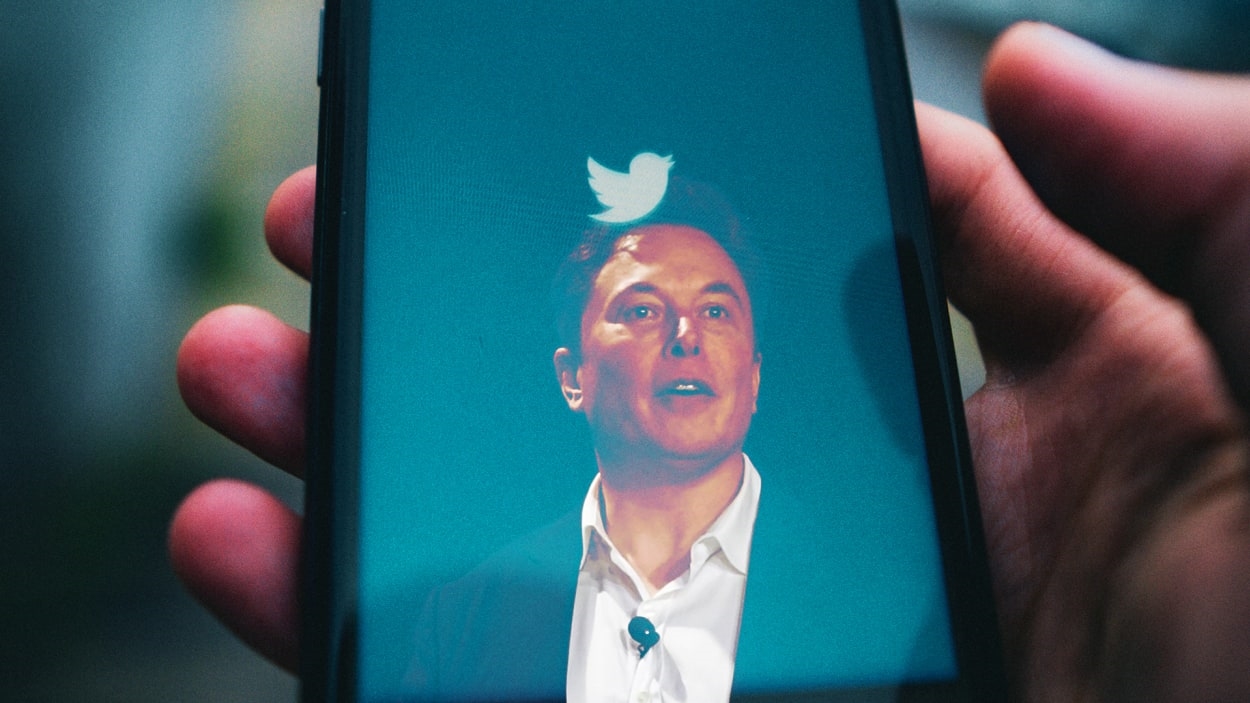By S.A. Applin
After months of speculation, on Thursday evening, Elon Musk finally took the helm at Twitter. The new “Chief Twit,” as his bio on the social media app now reads, was spotted earlier this week walking into San Francisco headquarters carrying a lavatory sink, all to make a joke about letting the news “sink in.” But there’s another meaning for many of us: that the Chief Twit may sink what’s thrived on the platform over the past 16 years.
Twitter has changed quite a bit since it first debuted in March 2006. What started out as a platform where people shared descriptions of what they were eating grew to become a major political and social force, where news is distributed and shared instantly. That’s not without its problems: On Twitter, news isn’t always vetted, edited, or synthesized into reasoned knowledge. But the raw data of events-as-they-happen has given the public previously unprecedented front-row Twitter seats to world occurrences in real time.
We’ve suddenly gained access to many political figures and representatives who we previously hadn’t been able to easily or directly reach. We can communicate quickly with companies that previously would not respond to our customer service issues. We can chat with celebrities and heroes (or at least their PR people). Twitter even helped us mobilize during a global pandemic and still provides us with critical health and supply chain information.
Twitter connects us in real time, in multiple streams that weave and intersect and mesh with each other in wonderful, and terrible, ways. Like the society it contains, Twitter is also a place of abuse and violence, and of hatred and rumor, where the worst of humanity meets to perpetuate the charters of insurrectionist groups and spread fascist lies. The platform banned Trump, but extremist U.S. Representative Marjorie Taylor Greene and others still actively promote their ideologies, and plenty of their supporters have active accounts. And then there are the bots, some banal (like weather and music bots), and some that automate the spread of deceit, rumors, and hatred.

The beauty and terror of Twitter is that it is a platform for so many uses and ways of communicating and being—it’s one of the most interesting social tools we’ve had. Under Musk, the service is bound to change in ways that will, in turn, alter the environment and the nature of the tool as we all use it.
Unpredictability ahead
Musk isn’t a typical CEO. He’s unpredictable and makes choices that don’t always seem grounded. Last week, The Washington Post reported that Musk had told investors that he intended to reduce Twitter’s workforce by 75%, or approximately 5,600 people. Earlier this week, he told Twitter employees that wasn’t the plan, but he still went on to fire a number of the company’s top executives. He manufactures electric cars, yet he also made flamethrowers. He’s said that Tesla’s mission is to protect life on Earth and aids NASA in its mission of helping transforming life here, but he also says that humanity’s future depends on colonizing Mars. He recently tried to convince us that Ukraine should forfeit territory to end the war, and said that banning Trump from Twitter was a “morally bad decision” even when the former president used his account in egregious violation of the Twitter rules. Musk is also under Federal investigation for his conduct on the Twitter deal, as well as dealing with a focus on Tesla facing a criminal probe over self-driving claims.
Twitter stakeholders—such as employees and investors—who are unhappy with the prospect of him as CEO may have already left, or are making plans to do so. As engineers depart the company, the ways (and means) to maintain Twitter infrastructure could go out the door with them. With Musk in charge, things could change from week to week, and that instability could lead to even more attrition.
With the U.S. midterm elections less than two weeks away, the impact from any foundational change at Twitter—such as Musk reinstating Trump and other banned accounts—could disrupt a service that’s evolved into an information utility for the public. The battle for control of the House and Senate will impact women’s reproductive rights, funding for the Ukrainian war, and whether President Biden can get support for his policies. Twitter has played a critical role in elections, with users encouraging others to vote and share voter registration information and polling locations. It also helps them to report those who block access to polls or challenge results. Security researchers on Twitter provide reassurance with up-to-date information on the robustness and safety of voting machines, too. Twitter enables dialogs with legal and political experts who actively post and answer questions in real time, as well.
Over the long haul, if Twitter’s management and workforce changes drastically, the waves of disruption have the potential for greater impact than most people anticipate. Twitter users provide balance to powerful media outlets (often with their own agendas), and we could lose that. In the age of social media, this is a worrying loss.
New management often shakes up companies, but Musk’s takeover will shake up, fragment, and further fracture our news and the ways we cooperate socially. Some people are already declaring that they’re leaving the platform for alternatives, such as Mastadon, Counter Social, and others—even LinkedIn. The conversations on Twitter this week have been about how we can find each other to connect and continue to cooperate.
In a real way, Twitter is already the metaverse that Zuckerberg wants to build at Meta, minus the creepy graphics and need to purchase an expensive headset that creates a barrier to entry. While even Musk mocks the metaverse, the reality is that he now owns the global social metaverse, and his unstable leadership patterns indicate that change may be coming in more ways that we could imagine. Chief Twit, indeed.
S. A. Applin is an anthropologist whose research explores the domains of human agency, algorithms, AI, and automation in the context of social systems and sociability. You can find more at @anthropunk, PoSR.org, and @anthropunk@federate.social.
(19)
Report Post






